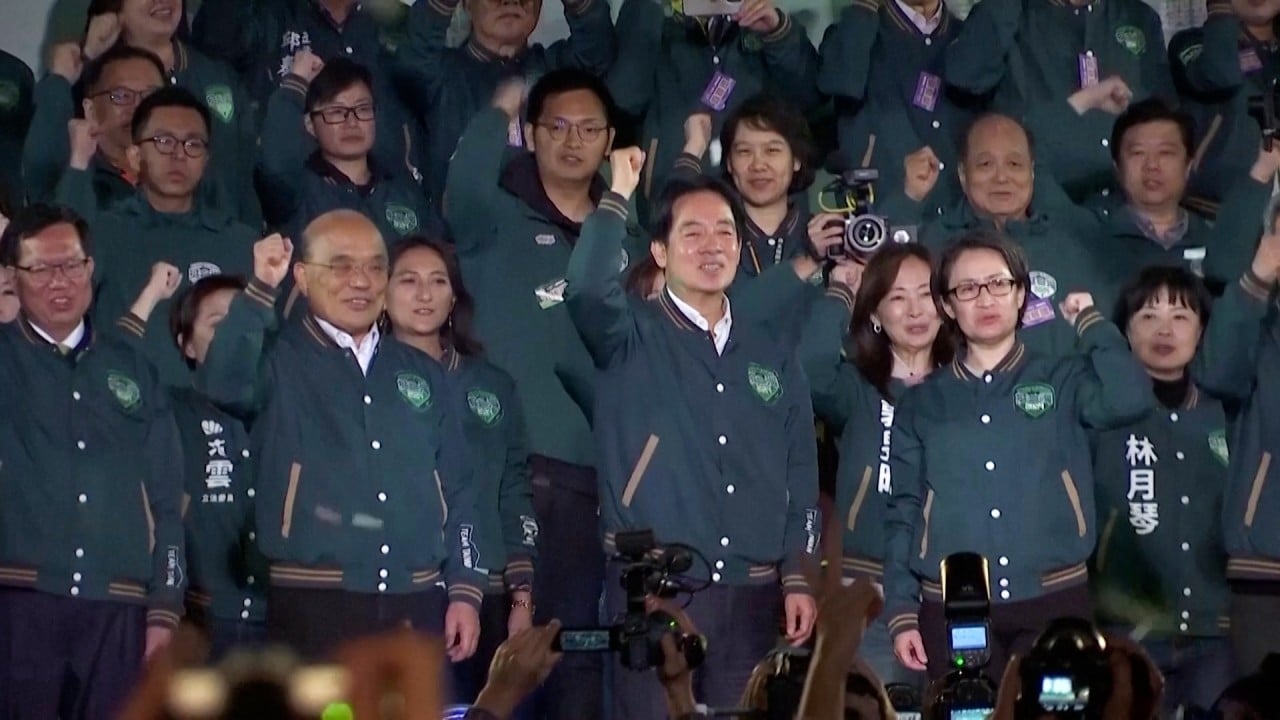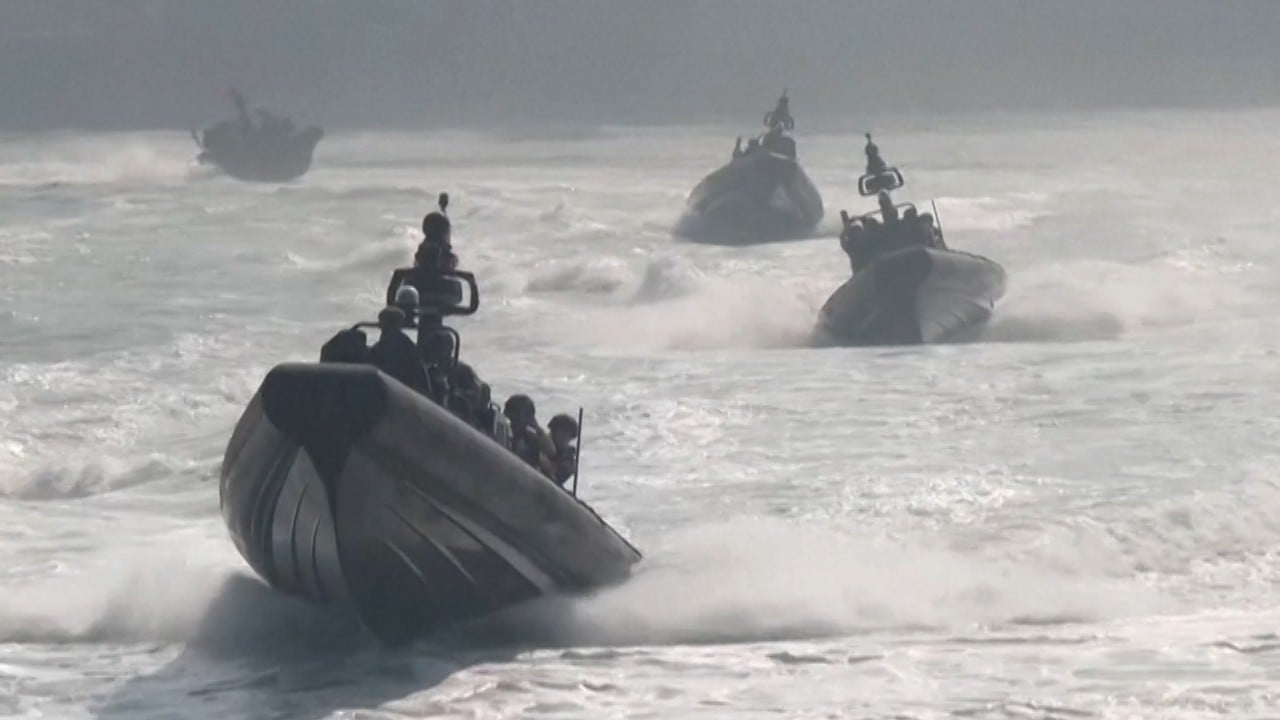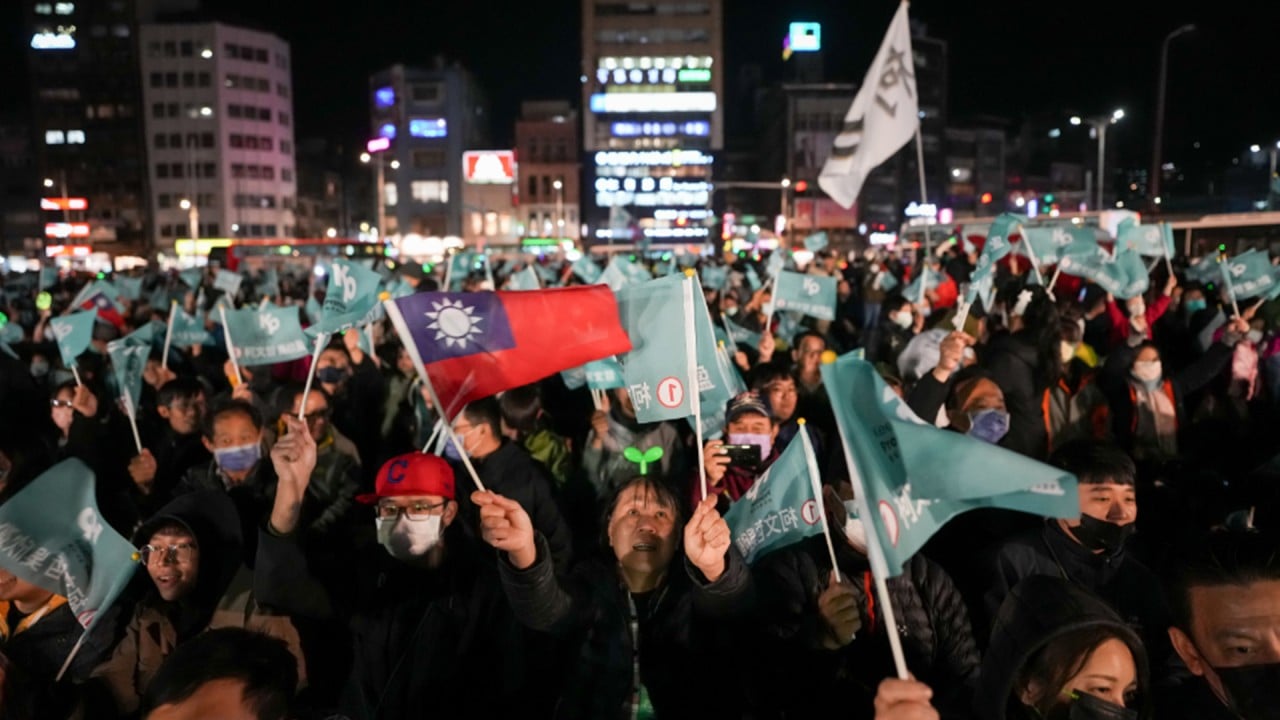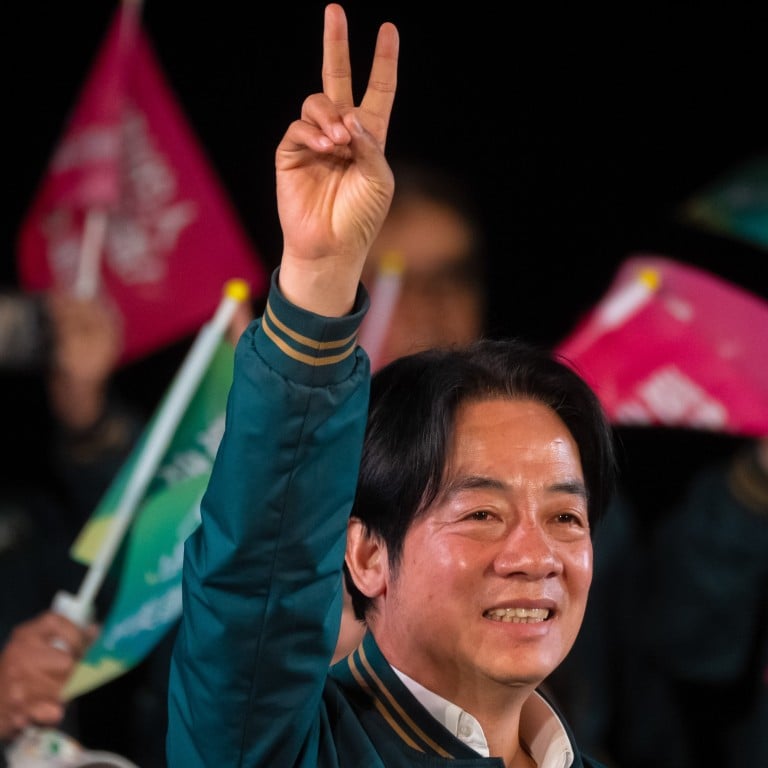
Taiwan elected a new leader who’s seen by Beijing as a ‘troublemaker’. Now what?
- Beijing faces a dilemma as it tries to balance the election of William Lai with domestic challenges and the US factor, analysts say
- They expect ‘more carrots than sticks’ in cross-strait policy, as well as efforts to bring ‘division and instability into Taiwanese society’
And while many expected Beijing to react forcefully after the independence-leaning Democratic Progressive Party was voted in for an unprecedented third term in January, the response has been subdued so far.
Probably Beijing officials in charge of Taiwan affairs are having some sleepless nights
According to analysts, that restraint reflects the conundrum Beijing faces in balancing domestic challenges, the US factor and the leadership change in Taipei. They expect Beijing to be closely watching and reviewing cross-strait policy ahead of Lai’s inauguration, but say major changes are unlikely.
Zhiqun Zhu, an international relations professor and director of the China Institute at Bucknell University in Pennsylvania, said it was a dilemma for Beijing.
“It has to respond and send some kind of warning to the incoming Lai administration. On the other hand, if it overreacts, its relations with Washington will suffer and cross-strait relations will further deteriorate,” he said.
“It is hard to predict what Beijing will do next, but it is clear that Lai’s election has posed a very serious challenge for Beijing – and probably Beijing officials in charge of Taiwan affairs are having some sleepless nights.”
Chinese officials in flurry of visits to PLA command to support war plans
After Lai secured 40 per cent of the vote on January 13, the immediate response from Beijing’s Taiwan Affairs Office was that the “DPP does not represent the mainstream public opinion” and the result would not “change the basic landscape and development trend of cross-strait relations”.
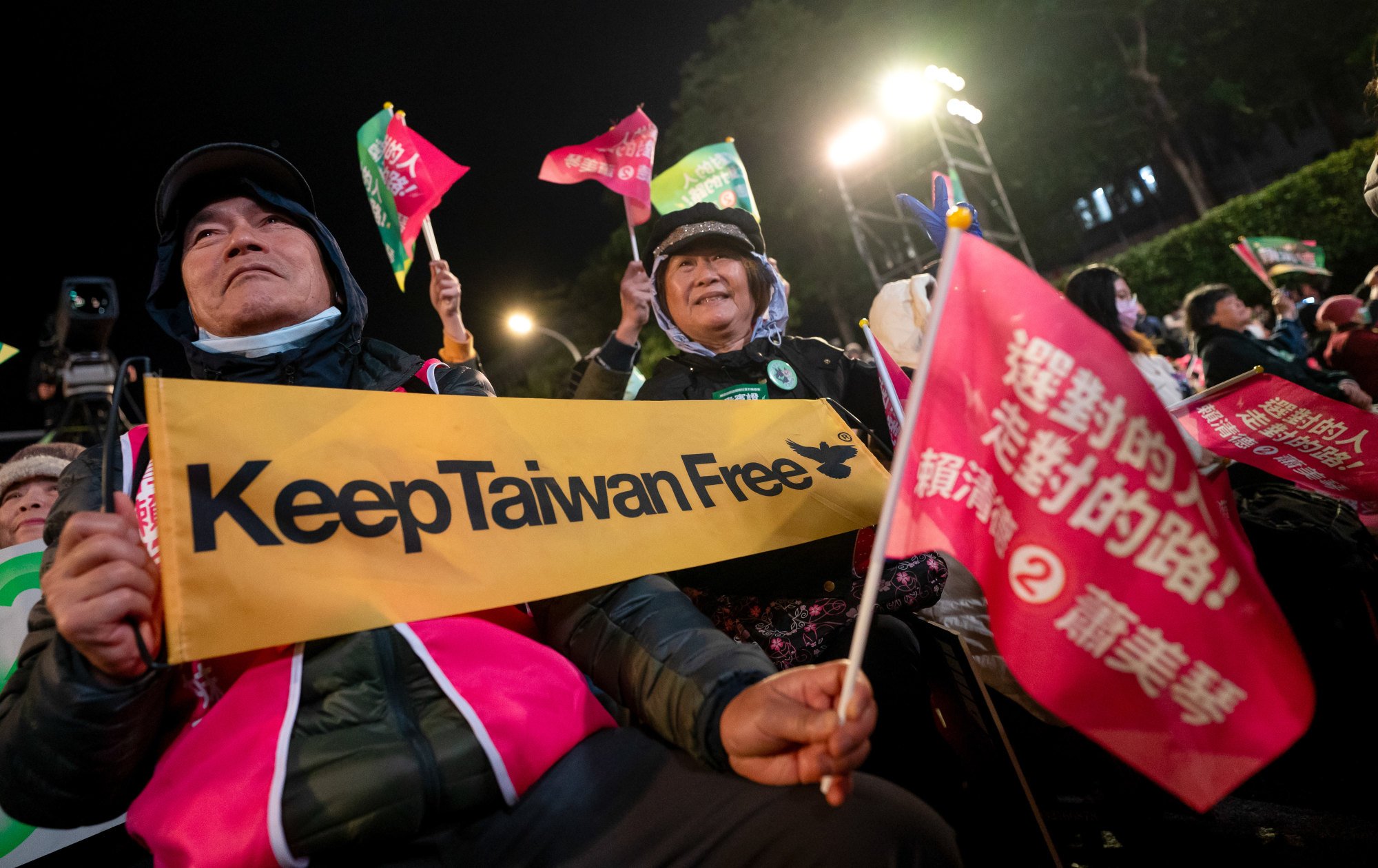
Yun Sun, co-director of the East Asia programme and director of the China programme at the Washington-based Stimson Centre, said domestic concerns were behind Beijing’s “very moderate” reaction to the election.
“I think China does want to prioritise domestic challenges this year and an escalation of tension with Taiwan, and hence the US, is not conducive to that agenda,” she said.
Sun said there could be a more assertive response to come, “but I don’t think China will act without provocation”.
“The Taiwan question is China’s internal affair, and the election in the Taiwan region cannot change the basic fact that Taiwan is part of China,” Wang said, according to Beijing’s readout.
Why Taiwan’s new pier on South China Sea islet may have put its leader in a spot
“If Lai maintains the pro-autonomy yet relatively restrained cross-strait policy of his predecessor Tsai Ing-wen, Xi may decide to hold off on intensifying Beijing’s trade penalties or military activities against Taiwan, to avoid creating an international outcry that would further erode confidence in China’s economy,” he said.
China has in recent weeks sought to dial down its rivalry with the West as it tries to woo overseas investors back to the country and restore confidence in its sluggish economy.
Beijing sees Taiwan as part of its territory and has never renounced the use of force to achieve reunification. While most countries, including the US, do not recognise the island as an independent state, Washington is opposed to any attempt to take it by force and is committed to arming Taiwan.
Following Washington’s lead, a growing number of countries in Asia, Europe and beyond have recently sought to develop unofficial ties with the island, creating new headaches for Beijing.
According to Thomas, given all the congratulatory messages sent from world leaders to president-elect Lai, it could now be more costly for Beijing to step up pressure on Taiwan.
“China’s economic problems and need for foreign markets, investment and technology mean that Beijing could lean more towards carrots than sticks in cross-strait policy this year,” he added.
The Chinese leader has himself signalled that Beijing will take a less confrontational approach.
Xi also commented on the Taiwan issue twice in the last week of December, calling reunification with mainland China a “historical inevitability”.
On the speech excerpts, Sourabh Gupta, a senior policy expert with the Institute for China-America Studies in Washington, said the timing was “just as important as its purpose”.
He said it basically confirmed that “forceful methods are firmly off the table – for the time being at least”.
According to Gupta, the election result shows that Taiwanese voters remain fundamentally against disturbing the status quo – and to Beijing that means peaceful reunification is still achievable.
“Taiwan may be at the core of its core interests, but Beijing is essentially a reactive actor on the Taiwan question,” he said. “It still believes (with some justification) that time is on its side, and this stance will not shift markedly any time soon so long as it believes that the door to peaceful reunification remains ajar and the status quo has not shifted to its detriment.”
He expected Beijing would stick to a “mix of continuity of the existing approach paired with a wait-and-watch stance”.
Zhu from Bucknell University echoed that view. “Beijing will continue to promote peaceful reunification – unless Taipei, emboldened by the US, crosses a red line such as changing the constitution or changing the official name,” he said. “The DPP government can continue to claim that Taiwan is already independent, but as long as it does not take legal steps to change the status quo, Beijing is unlikely to use force.”
As for the united front strategy, Sun from the Stimson Centre said it was “unlikely to succeed in the near future, as it has not worked in the past decade in the case of Taiwan”.
Taiwanese society was not united in its anti-China stance. This is an opportunity for China
But Takashi Hosoda, an assistant professor with the Institute of Intelligence Studies at the University of Defence in the Czech Republic, said Beijing would slowly try to expand pro-China forces in Taiwan.
“It is noteworthy that even after so much military pressure from China through military aircraft flights and naval exercises, and economic intimidation and harassment … Taiwanese society was not united in its anti-China stance,” he said. “This is an opportunity for China.”
While Lai was elected as the island’s next leader, his party failed to retain its majority in the 113-seat parliament, with gains made by the Kuomintang, the Beijing-friendly opposition.
He expected Beijing’s sabre-rattling to continue, but also efforts to bring “division and instability into Taiwanese society” including by supporting the opposition KMT and Taiwan People’s Party and anti-DPP campaigns.
While analysts agreed that Taiwan was a flashpoint for an armed conflict between the US and China, they did not think that was likely in the short term. But they were divided over the implications for Beijing of Taiwan’s growing international support.
Gupta said most of the countries that congratulated Lai on his election win were “the usual Euro-Atlantic suspects”.
“And none seems ready to touch – let alone overturn – their declared one-China policy,” he said. “If Beijing feels that time is not on its side, that the status quo is shifting or has shifted to its detriment, and that ‘something needs to be done’, it will take recourse to forceful or radical measures – regardless of the Taiwan question becoming internationalised.”
However, Philippe Le Corre, a non-resident senior fellow at the Asia Society Policy Institute’s Centre for China Analysis, said Nauru’s move to cut ties with Taipei showed that Beijing did not pay much heed to international support for Taiwan.
“[A bigger spotlight on the island] may be annoying, but at the end of the day the Chinese leadership thinks it can control the Taiwan agenda,” he said. “China wants to take its time to see how it can influence things in Taiwan, through the economy and by putting pressure on the local political scene. Beyond what has been taking place, it is hard to predict.”


